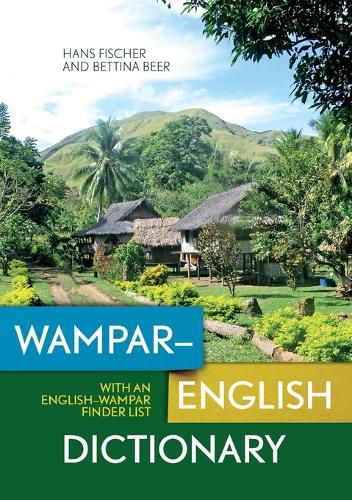Readings Newsletter
Become a Readings Member to make your shopping experience even easier.
Sign in or sign up for free!
You’re not far away from qualifying for FREE standard shipping within Australia
You’ve qualified for FREE standard shipping within Australia
The cart is loading…






This ethnographic dictionary is the result of Hans Fischer’s long-term fieldwork among the Wampar, who occupy the middle Markham Valley in Morobe Province, Papua New Guinea (PNG). Their language, Dzob Wampar, belongs to the Markham family of the Austronesian languages. Today most Wampar speak not only Wampar but also PNG’s lingua franca, Tok Pisin. Six decades of Wampar research has documented the extent and speed of change in the region. Today, mining, migration and the commodification of land are accelerating the pace of change in Wampar communities, resulting in great individual differences in knowledge of the vernacular. This dictionary covers largely forgotten Wampar expressions as well as loanwords from German and Jabem that have become part of everyday language. Most entries contain example sentences from original Wampar texts. The dictionary is complemented by an overview of ethnographic research among Wampar, a sketch of Wampar grammar, a bibliography and an English-to-Wampar finder list.
$9.00 standard shipping within Australia
FREE standard shipping within Australia for orders over $100.00
Express & International shipping calculated at checkout
This ethnographic dictionary is the result of Hans Fischer’s long-term fieldwork among the Wampar, who occupy the middle Markham Valley in Morobe Province, Papua New Guinea (PNG). Their language, Dzob Wampar, belongs to the Markham family of the Austronesian languages. Today most Wampar speak not only Wampar but also PNG’s lingua franca, Tok Pisin. Six decades of Wampar research has documented the extent and speed of change in the region. Today, mining, migration and the commodification of land are accelerating the pace of change in Wampar communities, resulting in great individual differences in knowledge of the vernacular. This dictionary covers largely forgotten Wampar expressions as well as loanwords from German and Jabem that have become part of everyday language. Most entries contain example sentences from original Wampar texts. The dictionary is complemented by an overview of ethnographic research among Wampar, a sketch of Wampar grammar, a bibliography and an English-to-Wampar finder list.